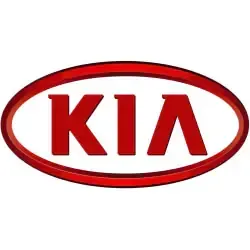Kia Soul Tire Pressure
Most common recommended tire pressure for Kia Soul is 33 psi based on year of production, trim and OEM tire size, but it maybe different for older models. It is imperative to confirm the exact tire inflation for your Kia Soul to ensure safety on the road. Always refer to your vehicle owner's manual for the correct tire pressure designated by vehicle's manufacturer.
Select your Kia Soul production year to see its recommended tire inflation.
| Model Year | Front Tires | Rear Tires |
|---|---|---|
| 2025 Kia Soul | 33 psi | 33 psi |
| 2024 Kia Soul | 33 psi | 33 psi |
| 2023 Kia Soul | 33 psi | 33 psi |
| 2022 Kia Soul | 33 psi | 33 psi |
Recommended Tire Pressure for Kia Soul
Maintaining the recommended tire pressure for a Kia Soul is crucial for several reasons that extend beyond mere vehicle performance. Firstly, it is essential for safety; proper tire inflation ensures the maximum contact area between the tire and the road, enhancing handling, braking efficiency, and stability, particularly in adverse weather conditions. Secondly, it significantly impacts fuel efficiency; under-inflated tires can increase rolling resistance, thus requiring more fuel to maintain the same speed. Thirdly, adhering to the manufacturer's recommended tire pressure prolongs tire life. Under or over-inflation contributes to uneven tire wear, necessitating premature replacement. Additionally, tire pressure affects ride comfort, with improperly inflated tires potentially leading to a harsher driving experience. For the Kia Soul, a vehicle known for its practicality and dependability, maintaining the recommended tire pressure is a simple yet effective way to ensure the vehicle operates economically, safely, and comfortably, safeguarding both the driver's investment in their vehicle and their personal safety on the road.

All listed guides, data and/or calculations are for informational purposes only. TirePressure.com does not warrant or make any representations regarding the accuracy of or the results of the use of this information. Always refer to vehicle owner's manual for the correct tire pressure configuration.